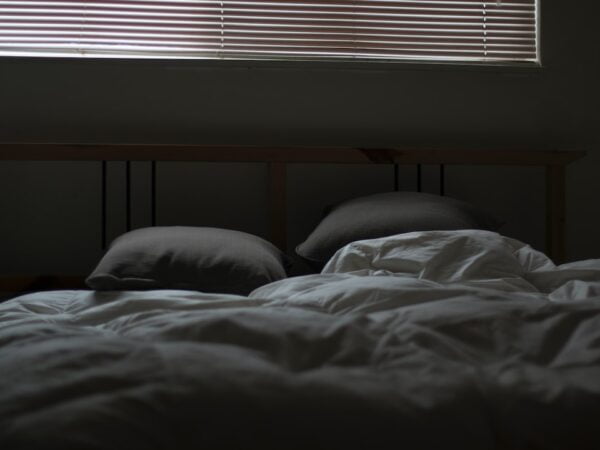
Unlocking the Secrets of Aging Gracefully: How Sleep Can Keep You Young
Aging is a natural process that we all go through. It is a journey that brings wisdom, experience, and growth. However, as we age, it becomes increasingly important to take care of our physical and mental health. Aging gracefully means embracing the changes that come with age and finding ways to maintain our well-being. One crucial aspect of aging gracefully is sleep. Sleep plays a vital role in the aging process, and getting enough quality sleep can have a profound impact on our overall health and well-being.
Key Takeaways
- Aging gracefully is important for maintaining physical and mental health as we age.
- As we age, our bodies undergo various changes that can affect our sleep patterns.
- Poor sleep can lead to physical health issues such as obesity, diabetes, and cardiovascular disease.
- Lack of sleep can also contribute to mental health problems such as depression and anxiety.
- Tips for getting better sleep as we age include establishing a consistent sleep schedule and creating a relaxing bedtime routine.
The Science of Aging: What Happens to Our Bodies as We Age
As we age, our bodies undergo various changes. Our metabolism slows down, making it easier to gain weight and harder to lose it. Our bones become weaker, leading to an increased risk of fractures and osteoporosis. Our skin loses elasticity, resulting in wrinkles and sagging. These changes can affect our sleep patterns.
The Role of Sleep in the Aging Process
Sleep is essential for our overall health and well-being, regardless of our age. However, as we age, our sleep patterns change, and we may experience more difficulty falling asleep or staying asleep. This can be due to various factors such as hormonal changes, medical conditions, medications, or lifestyle factors.
How Sleep Affects Our Physical Health as We Age
| Age Group | Recommended Sleep Duration | Physical Health Effects of Inadequate Sleep |
|---|---|---|
| Infants (0-3 months) | 14-17 hours | Increased risk of Sudden Infant Death Syndrome (SIDS), delayed physical growth, weakened immune system |
| Infants (4-11 months) | 12-15 hours | Increased risk of obesity, weakened immune system, delayed physical growth |
| Toddlers (1-2 years) | 11-14 hours | Increased risk of obesity, weakened immune system, delayed physical growth, behavioral problems |
| Preschoolers (3-5 years) | 10-13 hours | Increased risk of obesity, weakened immune system, behavioral problems, poor academic performance |
| School-aged children (6-13 years) | 9-11 hours | Increased risk of obesity, weakened immune system, poor academic performance, behavioral problems |
| Teenagers (14-17 years) | 8-10 hours | Increased risk of obesity, weakened immune system, poor academic performance, behavioral problems, increased risk of car accidents |
| Adults (18-64 years) | 7-9 hours | Increased risk of obesity, weakened immune system, increased risk of chronic diseases such as diabetes and heart disease, decreased cognitive function |
| Older adults (65+ years) | 7-8 hours | Increased risk of falls, decreased cognitive function, increased risk of chronic diseases such as diabetes and heart disease |
Lack of sleep can have a significant impact on our physical health as we age. It can lead to various health problems such as obesity, diabetes, and heart disease. When we don’t get enough sleep, our body’s ability to regulate blood sugar levels is compromised, increasing the risk of developing diabetes. Lack of sleep also affects our appetite-regulating hormones, leading to increased hunger and cravings for unhealthy foods, which can contribute to weight gain and obesity. Additionally, chronic sleep deprivation has been linked to an increased risk of heart disease.
On the other hand, getting enough sleep can help boost our immune system and improve our overall physical health. During sleep, our body repairs and rejuvenates itself. It releases growth hormones that help repair damaged cells and tissues. Sleep also plays a crucial role in regulating our immune system, helping us fight off infections and diseases.
How Sleep Affects Our Mental Health as We Age
Sleep is not only important for our physical health but also for our mental health. Lack of sleep can have a significant impact on our mental well-being, leading to depression, anxiety, and cognitive decline. When we don’t get enough sleep, our brain’s ability to regulate emotions is compromised, making us more susceptible to mood swings and negative emotions. Chronic sleep deprivation has also been linked to an increased risk of developing mental health disorders such as depression and anxiety.
On the other hand, getting enough sleep can help improve our mood, memory, and cognitive function. During sleep, our brain consolidates memories and processes information, helping us retain what we have learned and improve our overall cognitive function. Sleep also plays a crucial role in regulating our emotions, helping us maintain a positive outlook and better cope with stress.
Tips for Getting Better Sleep as We Age
While it is normal for our sleep patterns to change as we age, there are several things we can do to improve the quality of our sleep:
1. Stick to a regular sleep schedule: Try to go to bed and wake up at the same time every day, even on weekends. This helps regulate your body’s internal clock and promotes better sleep.
2. Create a relaxing bedtime routine: Establish a relaxing routine before bed to signal to your body that it’s time to wind down. This could include activities such as reading a book, taking a warm bath, or practicing relaxation techniques like deep breathing or meditation.
3. Avoid caffeine and alcohol before bedtime: Both caffeine and alcohol can interfere with your sleep. Avoid consuming them in the hours leading up to bedtime.
4. Make sure your bedroom is comfortable and conducive to sleep: Create a sleep-friendly environment by keeping your bedroom cool, dark, and quiet. Invest in a comfortable mattress and pillows that support your body.
The Connection Between Sleep and Longevity
Studies have shown that getting enough sleep can help increase our lifespan. Lack of sleep, on the other hand, can lead to premature aging and a shorter lifespan. Chronic sleep deprivation has been linked to an increased risk of developing chronic health conditions such as heart disease, diabetes, and certain types of cancer. It also weakens the immune system, making us more susceptible to infections and diseases.
On the other hand, getting enough quality sleep can help improve our overall health and well-being, reducing the risk of developing chronic health conditions and increasing our lifespan. Sleep is a time for our body to repair and rejuvenate itself, allowing us to function at our best.
How Sleep Can Help Us Maintain a Youthful Appearance
Lack of sleep can have visible effects on our appearance. It can lead to dark circles under the eyes, dull skin, and wrinkles. When we don’t get enough sleep, our body produces more cortisol, a stress hormone that breaks down collagen, a protein that keeps our skin firm and elastic. This can result in sagging skin and the formation of wrinkles.
On the other hand, getting enough sleep can help us maintain a youthful appearance and improve the overall health of our skin. During sleep, our body produces more human growth hormone (HGH), which helps repair damaged cells and tissues, including those in our skin. Sleep also improves blood flow to the skin, giving it a healthy glow.
The Importance of Sleep for Maintaining Brain Function as We Age
Sleep plays a crucial role in maintaining brain function as we age. During sleep, our brain consolidates memories, processes information, and clears out toxins. Lack of sleep can impair these processes, leading to memory problems, difficulty concentrating, and overall cognitive decline.
Getting enough sleep can help improve our memory, concentration, and overall cognitive function. It allows our brain to process and store information effectively, making it easier for us to recall and use that information later. Sleep also helps clear out toxins that accumulate in the brain during waking hours, reducing the risk of developing neurodegenerative diseases such as Alzheimer’s.
Embracing Aging and the Role of Sleep in the Process
Aging is a natural process that we should embrace. It brings wisdom, experience, and growth. However, it is essential to take care of our physical and mental health as we age. Sleep plays a crucial role in the aging process, and getting enough quality sleep can have a profound impact on our overall health and well-being.
By prioritizing our sleep and following the tips mentioned above, we can improve our overall health and well-being as we age. Sleep is not only important for our physical health but also for our mental health and cognitive function. It helps us maintain a youthful appearance, improves our memory and concentration, and increases our lifespan.
So let’s embrace aging gracefully and prioritize our sleep to live a healthier, happier life as we age.
FAQs
What is the recommended amount of sleep for older adults?
The recommended amount of sleep for older adults is 7-8 hours per night.
Why do older adults have trouble sleeping?
Older adults may have trouble sleeping due to changes in their sleep patterns, medical conditions, medications, and lifestyle factors.
What are the consequences of poor sleep in older adults?
Poor sleep in older adults can lead to a range of consequences, including increased risk of falls, cognitive decline, depression, and cardiovascular disease.
What are some tips for improving sleep in older adults?
Some tips for improving sleep in older adults include establishing a regular sleep schedule, creating a relaxing sleep environment, avoiding caffeine and alcohol before bedtime, and engaging in regular physical activity.
Can sleep disorders be treated in older adults?
Yes, sleep disorders can be treated in older adults through a variety of interventions, including medication, cognitive behavioral therapy, and lifestyle changes. It is important to consult with a healthcare provider to determine the best course of treatment.


















